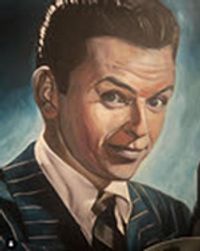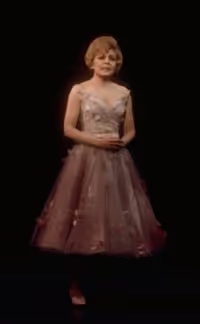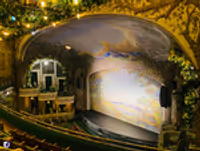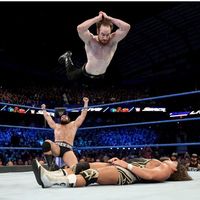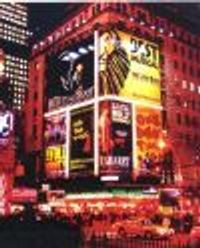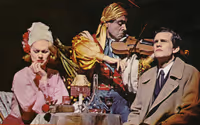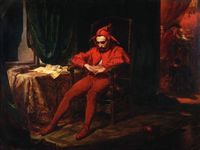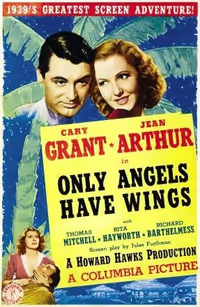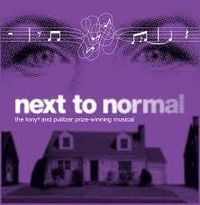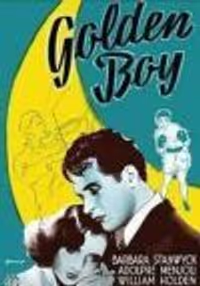What is the most underrated musical of all time
#125What is the most underrated musical of all time
Posted: 10/2/14 at 2:04am
The only thing that has kept 1776 from being a recognized theater classic is a couple of hit tunes, including an 11 O'clock production number guest-written by Jerry Herman. Despite the lack of songs that can be covered, I greatly enjoy the songs when I'm in the theater.
Showboat is a recognized musical theater milestone. The younger half here may not be as aware of this. Hard for me to believe, but the last revival was twenty years ago. A very good production that ran for almost 1000 performances and starred Mark Jacoby(?), Rebecca Luker (Tony nominated), Lonette McKee as Julie, Michel Bell as Joe, who I think still makes a living singing 'Ol Man River in local productions around the country. And, lest I forget, Elaine Stritch as Parthy. I think that they had to give Elaine the number that opens the second act, "Why do I Love You," written for the young married couple, in order to get her to take the role. Oh yes, this production was directed and choreographed by two newcomers, Hal Prince and Susan Stroman, who both won Tonys.
Every production of Showboat is a little different because there are so many songs to pick and choose from. Kern wrote additional songs for the second Broadway run and the 1936 film which starred Paul Robeson as Joe.
The 1994 revival heavily used the dirge "Misery's Comin' Around," of which not a note was heard in the 1951 MGM film. And, curiously, the original closing number written by Kern, "It's Getting Hotter in the North," has never been used in any of the film versions or major stage revivals. Not even in the original Broadway production. And it's a good song!
Updated On: 10/2/14 at 02:04 AM
#126What is the most underrated musical of all time
Posted: 10/2/14 at 5:42am
I saw Mack and Mabel a week after it opened. It is NOT an under appreciated musical. Great performances, great score, great sets and costumes, great direction and choreography, and a total bore. To me, it is the all-time proof that a book can kill a show. I still remember being embarrassed for the performers during the curtain calls, because the applause were so bad. Maybe, with a different book, and a Tarantino shuffle, so she dies in the middle and the show ends on an exuberant note...
Jarethan, as I recounted elsewhere, I worked on a production of MACK AND MABEL staged by Ron Link (with a mostly new cast) to open the refurbished Miami Beach Theatre for the Performing Arts about a year after the Broadway production closed.
In line with your remarks re Tarentino, Link staged the show more or less as written (leaving the problem that Mabel has left Mack in Act II and they have no reason to be on stage together).
THEN he had Mack repeat a line from earlier in the play: "What's the point of making movies if you can't change life?" The overture began again and played in its entirety while a ballet was performed showing a "happy" version of Mack and Mabel's life, culminating in their marriage and flying into the loft on an oversized heart a la Busby Berkeley.
As I said above, it didn't solve all the problems, but I thought it worked quite well and actually had more pathos than productions I've seen that were truer to history. (The book writer, Michael Stewart, apparently felt otherwise. He appeared at my box office window, threw his opening night tickets at me and said loudly, "Tell 'em all I'm going home to Paris!" And home he went, I assume.)
The star of our production was Lucie Arnaz. She was very good and business was more than decent at both of our South Florida theaters.
But that second act still didn't work. I think they need to stretch out the entire plot so that Mabel's departure from Mack's studio (current Act I curtain) is more or less the ending. Invent some incidents if necessary. Nobody cares about Mabel's drive to be a "serious artist" anyway.
Updated On: 10/2/14 at 05:42 AM
#127What is the most underrated musical of all time
Posted: 10/2/14 at 6:03am
Confidential to Someone in a Tree: I like THE ROBBER BRIDEGROOM, too. Natch.
Confidential to Sally Durant, etc.: The recording of GRASS HARP doesn't offer a clue as to what the show is about. (For one thing, the original had a cast of 14, but except for 2 solos, all of the recording songs are sung by four people, three women and Russ Thacker playing a 16-year-old boy.)
If you find a good on-line scenario let me know. The ones I see aren't much help either. Perhaps the plot is indescribable: I actually saw one of the TV versions and have no memory of it except that some adults go live in a treehouse. (The setting is inspired by the young Truman Capote and Harper Lee playing in the tree house behind his aunt's house. But the story? Who knows?)
#128What is the most underrated musical of all time
Posted: 10/2/14 at 9:19am
Galveston:
I found this to be of help -
Synopsis
#129What is the most underrated musical of all time
Posted: 10/2/14 at 9:41amLady in the Dark. Way ahead of it's time.
#130What is the most underrated musical of all time
Posted: 10/2/14 at 11:44amIm not really sure if these are underrated but A FUNNY THING HAPPENED ON THE WAY TO THE FORUM and EVITA are GREAT shows!
#131What is the most underrated musical of all time
Posted: 10/2/14 at 12:12pm
In the US, Tanz der Vampire, since the Broadway production left such a bad taste in everyone's mouth.
The European productions are really just a lot of fun.
Wilmingtom
Broadway Legend Joined: 7/18/11
#132What is the most underrated musical of all time
Posted: 10/2/14 at 2:51pmThe plot of The Grass Harp is really pretty simple. Two spinster sisters live together with their orphaned teenage nephew (Russ Thacker) and Black housekeeper (Carol Brice). Dolly (Barbara Cook) makes an elixure cure and the dominating Verena (Ruth Ford) wants to mass market it. Enter Mr. Ritz (Max Showalter) to woo Verena in hopes of getting his hands on Dolly's potion. When Dolly refuses, thereby defying Verena, she, the nephew and the housekeeper flee the mean Vereena and take up residence in a nearby treehouse. Verena learns the error of her ways when Ritz absconds with her money and she gains a new appreciation, and need, for her family and brings them home. A subplot involves the divine Karen Morrow as a pseudo-Evangelica, Baby Love, who arrives with her traveling "miracle show" peopled by her many illegitimate children. The Tunick-Robert Russell Bennett orchestrations are outstanding as are all of the performances. Had it not opened during a newspaper strike, thus no advertising or reviews, it might have made it.
#133What is the most underrated musical of all time
Posted: 10/3/14 at 8:08am
Thanks, Wilmington and Sally.
Wilimington, I know how much more work it takes to write succinctly, so I appreciate your setting up the situation. But I was more befuddled as to what happened after the move into the treehouse.
Sally's site gives more details on that subject, but it does sound like a lot of people "visiting", only to have the conflict over marketing the dropsy cure reappear late in Act II.
Still, it's an extraordinary score. IBDB shows the composer only contributing incidental music to Broadway plays after HARP's failure. What a shame!
#135What is the most underrated musical of all time
Posted: 10/3/14 at 8:19amI second Anyone Can Whistle, as well as Romance Romance, and Weird Romance.
#136What is the most underrated musical of all time
Posted: 10/3/14 at 9:16am
A Time for Singing
Baker Street
New Girl in Town
Gray Gardens
#137What is the most underrated musical of all time
Posted: 10/3/14 at 11:38am
GRASS HARP's composer also later contributed the score to a musical called LOLA about the fabled Lola Montez. It's a lovely score as well, as shown on a studio recording with Judy Kaye, David Carroll and Christine Andreas.
It took a LITTLE ME-esque angle with a young an old Lola, sung by Andreas and Kaye respectively, with Carroll singing all the men in her life.
Wilmingtom
Broadway Legend Joined: 7/18/11
#138What is the most underrated musical of all time
Posted: 10/3/14 at 1:36pmComposer Claibe Richardson (The Grass Harp) also composed the fine score for Night of the Nunter with book and lyrics by Stephen Cole.
#139What is the most underrated musical of all time
Posted: 10/3/14 at 7:30pmThank you so much, guys. I will definitely look for recordings of those!
#140What is the most underrated musical of all time
Posted: 10/3/14 at 8:29pmEver since my first few listenings of The Grass Harp, I too have had "Yellow Drum" stuck in my head! I do adore the score, and "Chain of Love" is astounding. Thanks for the recommendation!
#141What is the most underrated musical of all time
Posted: 10/3/14 at 8:50pm
"Chain of Love" is definitely one of the most underrated musical songs of all time.
#142What is the most underrated musical of all time
Posted: 10/3/14 at 9:27pm
I agree, but there's so much character and pathos in "Marry with Me" that it is my favorite song in the score.
Basically, there are a lot of jewels in that "box".
#143What is the most underrated musical of all time
Posted: 10/3/14 at 10:35pm
"GRAND HOTEL - I don't think I have seen a show that was more beautiful to look at (from the lighting, to the Tune staging - even the background performers were watching the action....) It's the one show for which I'd give anything to jump back 25 years and see again in original form on Broadway. Flaws and all, it blew me away. I might not even have liked it - but I loved it more than I can say. Those glowing, twirling chandeliers! Karen Akers! Jeter! (And missed David Carroll by one week... pity)"
I agree...but I did see David Carroll. Still my favorite voice I've ever heard on Broadway, and what a charming, and mesmerizing performance he gave. A true handsome leading man. Incredible loss.
Watch this clip:
David Carroll - "Love Can't Happen" [Donahue 1990]
Updated On: 10/3/14 at 10:35 PM
#144What is the most underrated musical of all time
Posted: 10/3/14 at 11:09pmWhen I think of shows that have a distinctive quality that few "civilians" are aware of, Carnival is a show that fits underrated.
#145What is the most underrated musical of all time
Posted: 10/3/14 at 11:38pmOnly knowing the music and the reputation of the shows, probably Paint Your Wagon or Bravo Giovanni.
#146What is the most underrated musical of all time
Posted: 10/4/14 at 8:41pmConfidential to Wilmington and Sally: as you suggested, I found the other Richardson recordings on Amazon and have placed my order. Thanks in advance. I can't wait!
#147What is the most underrated musical of all time
Posted: 10/4/14 at 9:28pmBonnie and Clyde, Shrek
#148What is the most underrated musical of all time
Posted: 10/7/14 at 2:46am
I second Bonnie and Clyde. It had a great score (and I am usually not a
Frank Wildhorn fan); characters I was made to care about:was intelligently directed with a fascinating unit set and masterfully performed. It urks me how the mundance Once and If/ Then run while this show got hit by bullets and crashed. Just because NY Critics hate Frank Wildhorn.
#149What is the most underrated musical of all time
Posted: 10/7/14 at 8:06amIn recent times, Chaplin and Bonnie and Clyde.
Videos


